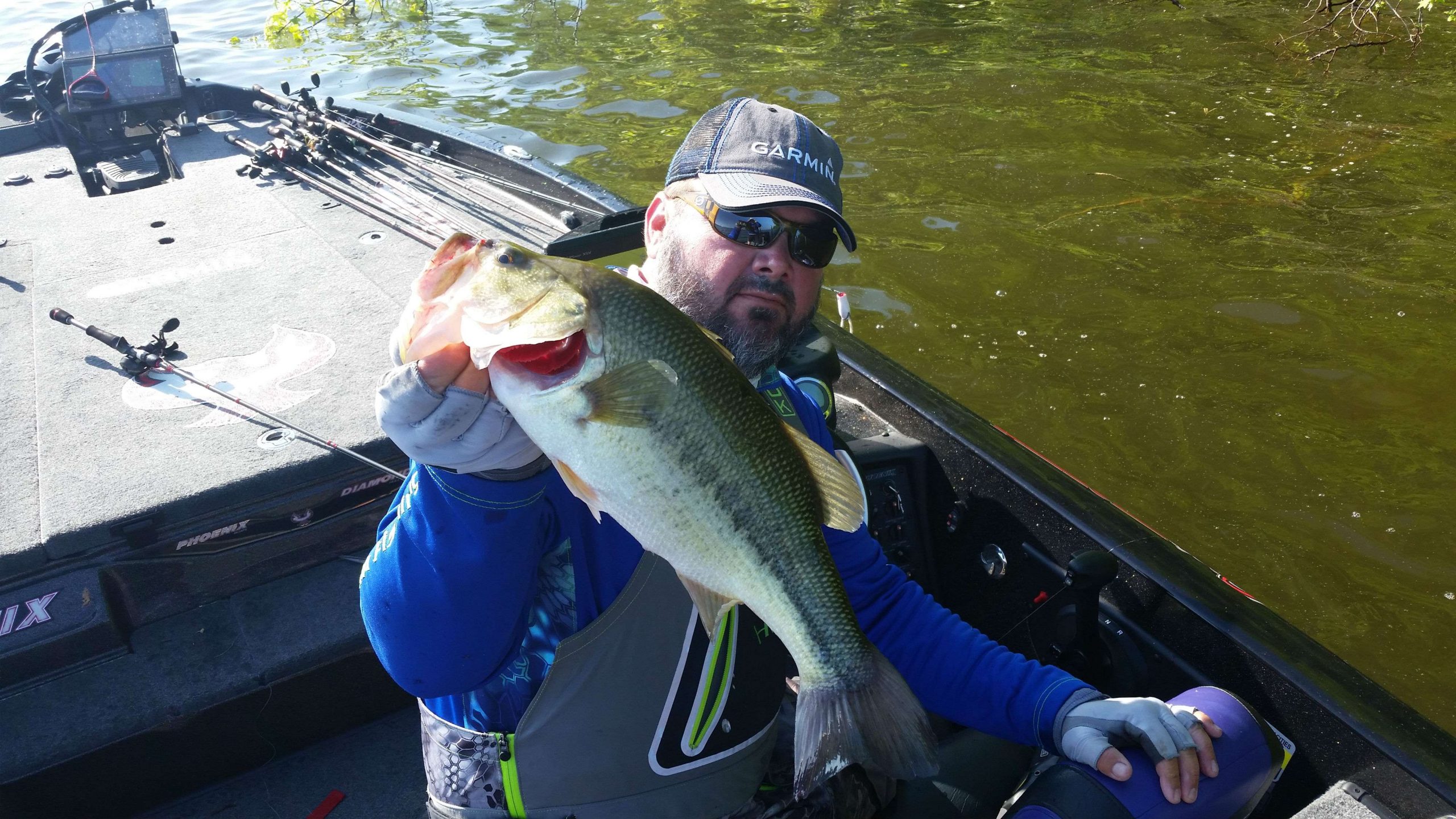
Last time I made a brief mention about catching bass that are just a little bit bigger. That’s what we do in tournaments. It’s about finding a pattern within a pattern that pushes our weights up to where they need to be to get a check or a win.
As a recreational angler you may not want to do that. So, what I’m going to talk about here in a minute applies to anglers who want to catch bigger bass. But that might not be you. If you’re on a fishing trip or maybe you only have one day off work to go fishing, it might be that catching higher numbers of ordinary bass is more fun.
Why pass over catching a bunch of 2-pounders just so you can look for one 4-pounder, and maybe not find her at all? Think about that before you spend your time looking for the trick that’ll put bigger bass on the end of your line.
Nevertheless, if you want to find the bigger ones here’s the deal: Big fish are bigger than the others for a reason. We may not know what that reason is, but we do know it’s there. Never forget that, not ever and not for any reason.
That unknown reason will mostly cause them to do things that are different from the others. That unknown reason may be where they position or how they feed. It might even be what direction they’re facing when they feed.
Realistically, the only way to figure that out is to try different things until you stumble on to what works. That gets easier the more you fish, but it can still be a challenge.
It’s popular to believe that bigger baits catch bigger bass. As a general rule I think that’s true. But general rules are called general for a reason. They aren’t always accurate, and they don’t always point you in the right direction. Even more importantly, subtle differences sometime make for huge differences in your catch.
One Bassmaster Elite Series angler won a tournament fishing with a swimbait that was bigger than what you’d think would work for where he was fishing. On another occasion a different angler won a tournament on the same body of water fishing a frog when no one else was fishing one.
At the same time, though, keep in mind that other anglers have targeted the bigger bass with finesse baits fished in exactly the right locations. Sometimes big bass will hold on a specific type of spot facing a specific direction. This will often hold all over the lake. He’ll figure that out and catch them with a small lure dropped right on their nose.
The whole thing about culling out smaller bass is a hit and miss proposition, and it depends upon the water you’re fishing and in some cases the day you’re fishing. This is where there’s no substitute for time on the water. You have to have the experience to make smart choices and the confidence to know when they’re working and when they’re not working.
But I want to tell you again — be wary of culling out smaller bass if you’re just out fishing with your family or your friends. Bass fishing is supposed to be fun. Don’t ever lose sight of that.

